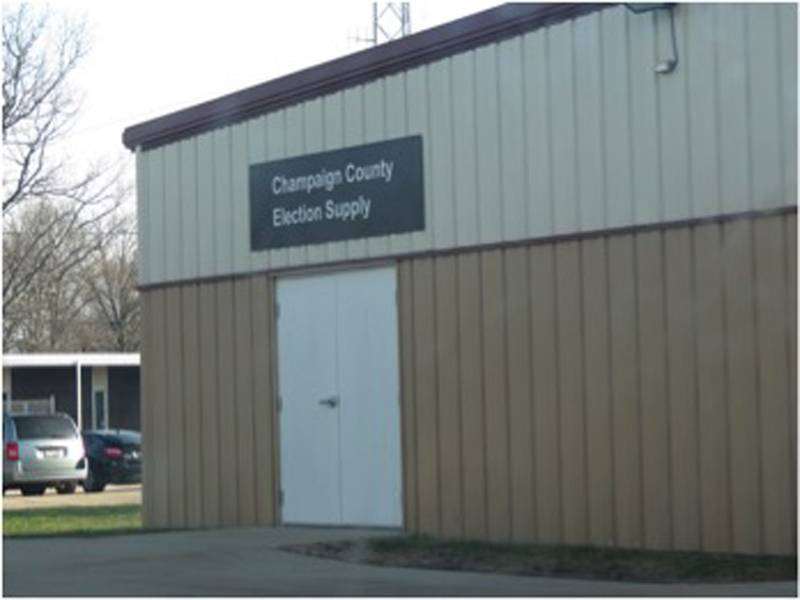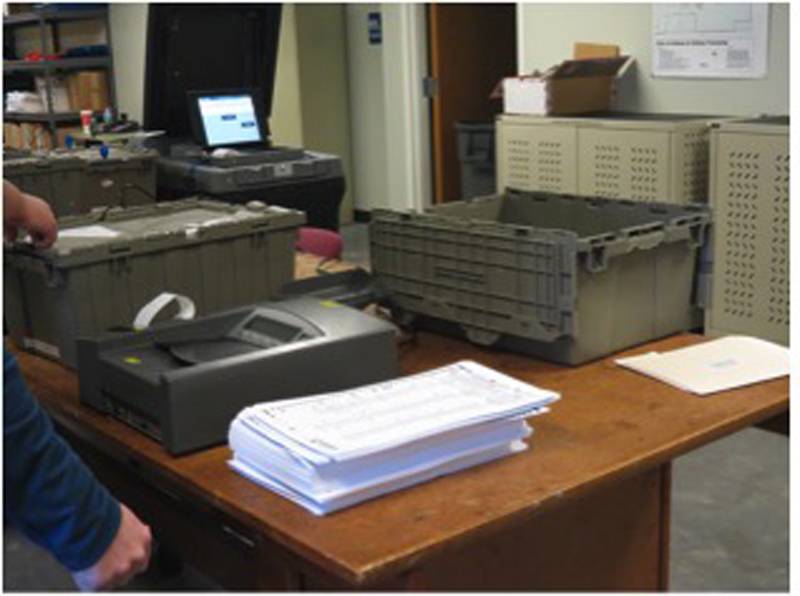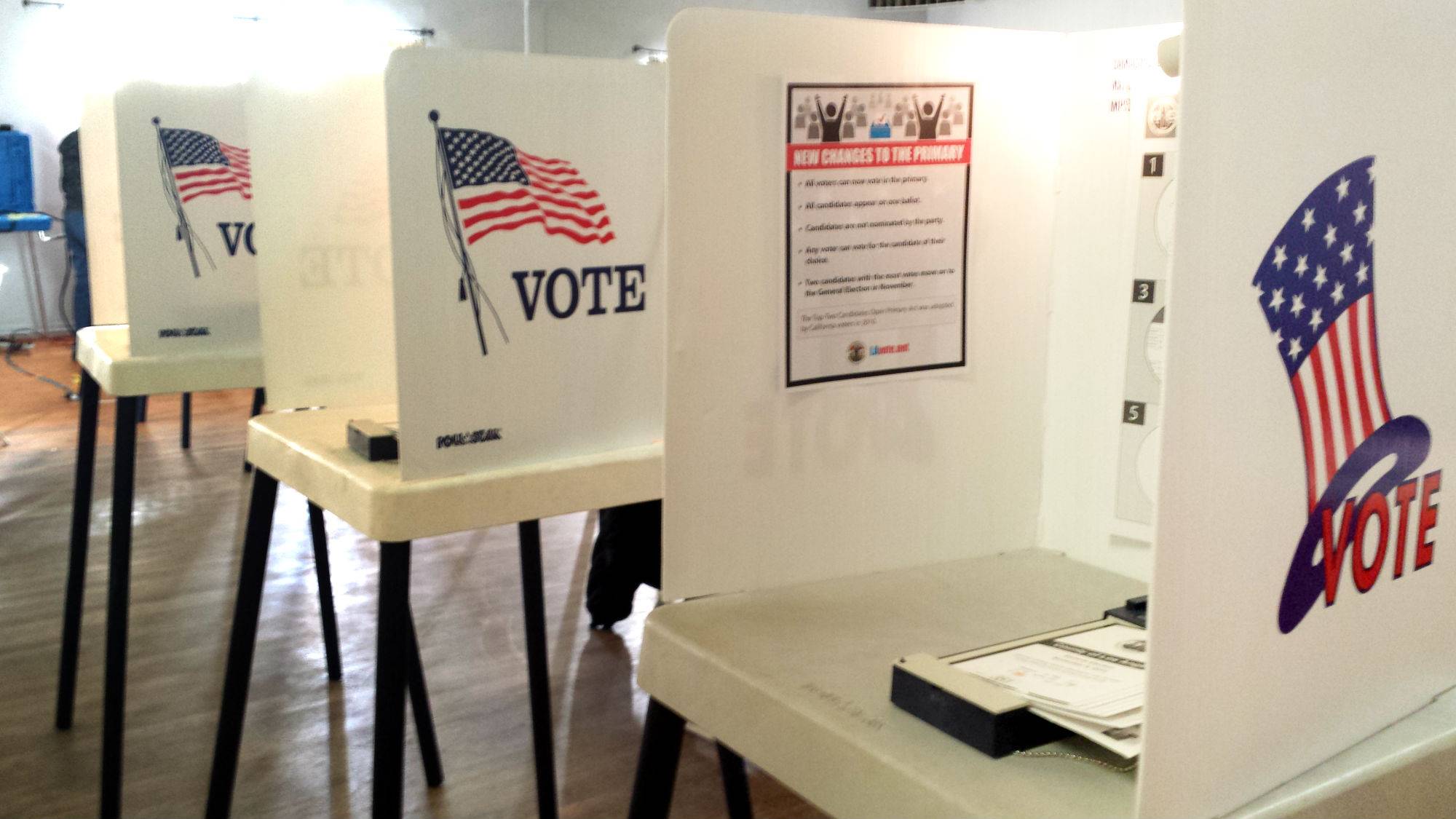I served as a poll watcher during the November 2016 elections in Champaign County. Poll watching provided stark insights into challenges facing election judges and voters in Champaign County, which I documented after the election.
Now, as the 2018 primary elections approach, new concerns have also emerged. I posed my concerns to the Champaign County Clerk’s Office and Champaign County Clerk Gordy Hulten through a series of emails.
Smile Politely: For the last 18 months, there has been widespread reporting in state and national publication as well as Senate Hearings devoted to discussing the Illinois voting machines being successfully breached by cyber attacks:
…According to Ken Menzel, general counsel for the Illinois board of elections. The hackers had gained access to the state’s voter database, which contained information such as names, dates of birth, genders, driver’s licenses and partial Social Security numbers on 15 million people, half of whom were active voters. As many as 90,000 records were ultimately compromised.
Bloomberg.com, “Russian Cyber Hacks on U.S. Electoral System Far Wider Than Previously Known,” June 13, 2017.
Were Champaign County voters hacked in the 2016 elections? If so, how were those breaches addressed?
Gordy Hulten: The State Board of Elections had a well-publicized breach of their voter registration database that affected a handful of Champaign County voters. Those voters were individually contacted by the State Board of Elections.
SP: Therefore, since Champaign County voters were indeed the victims of cyber attacks in 2016 and the corrective actions that were taken happened at the state level, my first concern is how will the Champaign County Clerk’s Office protect Champaign County voters from 2018 cyber attacks?
Hulten: Champaign County has two separate systems: a voter registration system, and a  voting/tabulation system. The voter registration system is required by law to be connected to the internet so that we may synchronize voter records on a nightly basis with the State Board of Elections. All systems connected to the internet are vulnerable to cyber attacks, but we have taken steps in coordination with the State Board of Elections, the State Police and the Department of Homeland Security to secure those voter registration records in accordance with best practices currently available, and we monitor those practices and update them when necessary.
voting/tabulation system. The voter registration system is required by law to be connected to the internet so that we may synchronize voter records on a nightly basis with the State Board of Elections. All systems connected to the internet are vulnerable to cyber attacks, but we have taken steps in coordination with the State Board of Elections, the State Police and the Department of Homeland Security to secure those voter registration records in accordance with best practices currently available, and we monitor those practices and update them when necessary.
The voting/tabulation systems are the machines and procedures that create and tabulate (count) ballots and aggregate results. These machines are never connected to the internet, and are never connected to any PCs that are ever connected to the internet. This offline status affords us greater protection against cyber attacks. In addition, all votes cast in Champaign County are cast by voters on paper ballots, so we have a fully verifiable paper trail and audit process to ensure the tabulators are counting votes accurately.
SP: My second concern are the unclear passages on too many of the Champaign County Clerk’s Election Information pages that can be confusing or provide insufficient explanations to voters:
What exactly is the difference between grace period voting and early voting?
Hulten: Early voting is voting in person prior to Election Day, usually starting 40 days prior to Election Day. Grace Period Registration and voting is similar, but involves a voter first registering to vote (or updating their registration) and casting a ballot at the same time, also done in person. Grace Period starts when traditional voter registration ends 28 days prior to Election Day and extends through the close of polls at 7 p.m. on Election Day.
SP: Yet the language on the Champaign County Clerk Grace Period Registration and Voting Page is confusing. Two contradictory directives are given:
- In the second paragraph on the page, the language states that an individual “may register to vote or submit a change of address in-person and vote directly thereafter, at any of our Early Voting locations or at their Election Day polling place.”
- However, the third paragraph, the wording states that the individual “that registers and votes during this specific time, may not cast a ballot at an Early Voting Center or polling place on Election Day.
Can individuals that seek to vote early during Grace Period Voting actually vote at early voting centers or not?
Hulten: Yes, Grace Period Registration and Voting is available at all voting locations starting on February 21 when traditional voter registration closes.
SP: The County Clerk has been encouraging individuals who cannot participate in same-day voting, early voting, or grace period voting to use vote by mail as an option.
However, why is the vote-by-mail as described on the County Clerk website so confusing?
According to the County Clerk’s Vote-By-Mail Page:
Dates for voting by mail for the March 20, 2018 General Primary.
- Wednesday, December 20, 2017 – The first day to receive an application for a ballot through the mail.
- Thursday, February 8, 2018 – The first day to mail an official ballot to a registered voter within the United States.
- Thursday, March 15, 2018 – The last day that ballots may be mailed out is 5 days prior to the election. This is also the last day that we may receive an application by mail from anyone who has requested a ballot by mail.
To be counted, a ballot must be postmarked on or before March 20, 2018 and arrive in our office by Tuesday, April 3, 2018.
Note: if a ballot is placed in a mail drop box on March 20, 2018, it may be postmarked March 21, 2018, and will not be eligible for counting.
Does this mean that regardless of how early you can apply for your ballot (between December 20th and March 15th) and are approved to vote by mail, the ballot will not be counted until April 3rd, 2018?
Hulten: Incorrect. Vote By Mail ballots received in our office prior to Election Day are tabulated and the results released with our other unofficial results after 7 p.m. on Election Day. VBM ballots received up to 14 days after Election Day, but postmarked no later than Election Day, are tabulated after Election Day and included in our official election results when certified.
SP: When exactly will the ballots received on March 20th will be tabulated?
Hulten: It varies depending upon the number of ballots and the election calendar, but we publicize it several days in advance so that poll watchers, media, candidates, etc. may observe. Usually it is the afternoon of the Tuesday two weeks after Election Day, the first day under the law that we can certify our results.
SP: I applied to serve as an election judge and attended the mandatory training for the 2016 elections. However, I was not selected as an election judge. Furthermore, the only way I learned that I had not been selected was by happenstance. As Election Day approached, I called the Champaign County Clerk’s Office repeatedly to get my polling place assignment and that is when I had not been selected and I was not given a reason for not being selected.
What are criteria used to determine which individuals will be selected and which individuals will not be selected?
Hulten: The election judge certification process involves both established political parties, the Circuit Court, and the County Board. We attempt to first use certified EJs when available, and if we need additional judges, we will add alternates to ensure the correct party affiliation ratio and number of EJs for a given polling place. Someone could be denied the opportunity to serve if we already have enough EJs of a given party at a given polling place (or at all polling places). For most elections, we have more Democratic EJs willing to work in some geographic areas, and more Republican EJs willing to work in other geographic areas, and if the EJs are unable or unwilling to travel to other parts of the County, we are unable to use them.
 SP: This is yet another explanation of the election administration process that voters have no way of accessing on the Champaign County Clerk website.
SP: This is yet another explanation of the election administration process that voters have no way of accessing on the Champaign County Clerk website.
While I appreciate the Clerk sharing the rationale for election judge selection, I am concerned that the county demographics do not factor into the election judge selection process.
Given the racial, class and gender diversity in Champaign County — 11% 65 years of age or older; 50% Female; 72% White; 13.1% Black; .4% Native; 10.7% Asian; 5.8% Hispanic; 2.8% Two or More Races — I would argue that election judges should represent the diversity of the county, particularly as these are paid positions in a county with ongoing income and employment disparities.
Regarding the administration of the ballot application process, the ballot access process, early voting, grace voting and same day voting, who exactly is administering the Primary Election?
More pointedly: Is candidate Grandone currently engaging in election administration in his own contested election?
Hulten: Mr. Grandone is our Director of Training, and is integrally involved in all day-to-day operations of our office, as is every member of our team, and as am I.
———
While I appreciate Clerk Hulten’s responsiveness to my queries, Champaign County election administrators, voters, and candidates must be far more vigilant in the following areas:
-
We MUST pay attention to LOCAL procedural and logistical matters regarding ALL ASPECTS of the election process, and we must be concerned about these procedures far earlier that the month before an election is to occur.
Frankly, I urge our local organizations concerned with voter protections to conduct a close review of the Champaign County Clerk Election Information Pages prior to the beginning of election season to make sure that web-based information is clearly communicate, consistent with state election law and provide recommendations to improve the voting experience across Champaign County.
- We MUST REQUIRE UNAMBIGUOUS, FULL AND DETAILED EXPLANATIONS OF ELECTION PROCESSES AND PROCEDURE if we are to ensure fair and valid administration of our local election.
- We must also conduct a REQUIRED post-mortem of our elections to examine best practices, express concerns, identify areas of improvement and craft legislation where necessary for the administration of future elections.
Nicole Anderson Cobb, PhD, is a four-time UIUC alum and an educator, writer, and anti-violence activist. She lives in Champaign with her family.
Top photo by James Manrique. Additional photos by Nicole Anderson Cobb.








